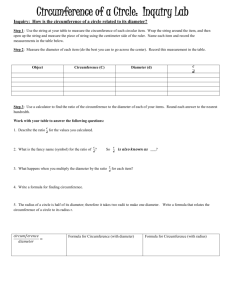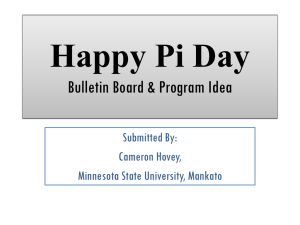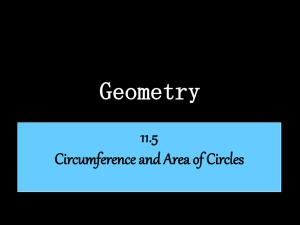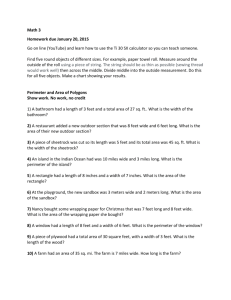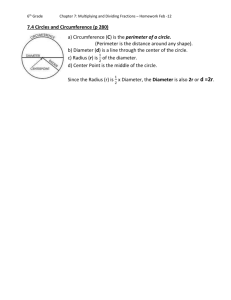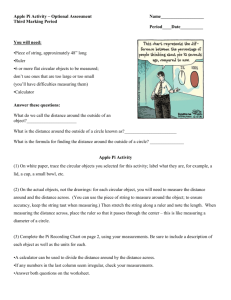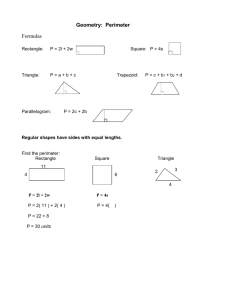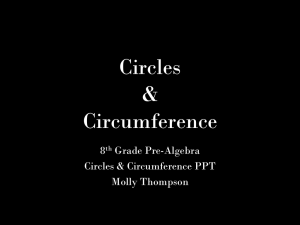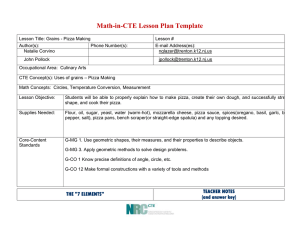7.G.4 Area and Circumference of Circles
advertisement
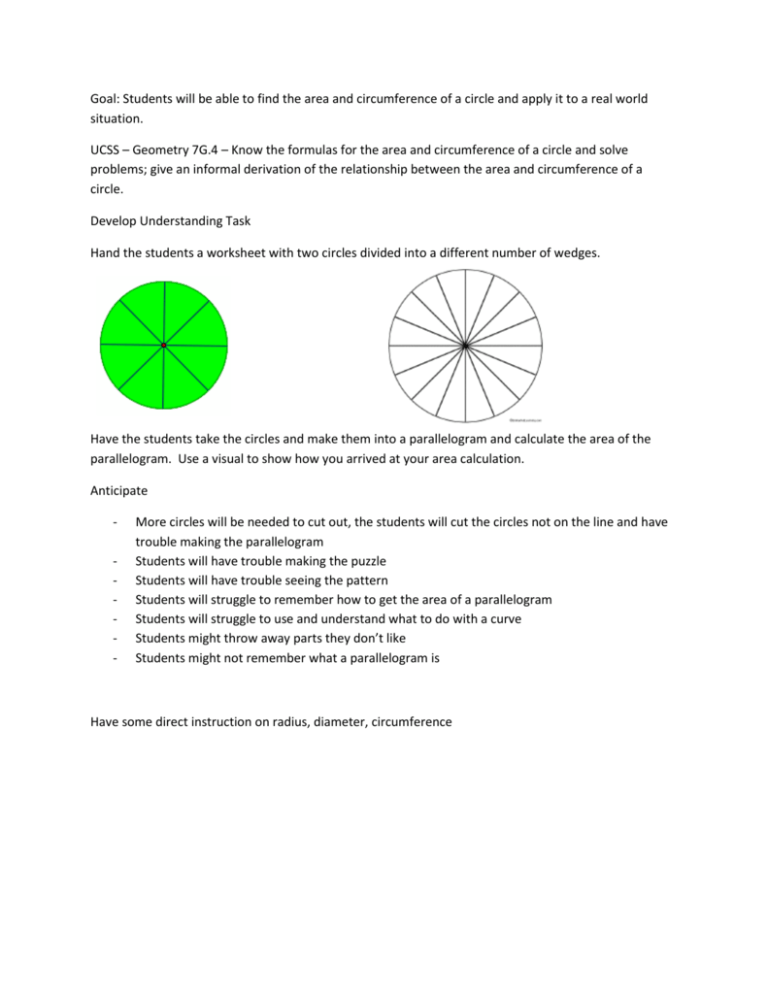
Goal: Students will be able to find the area and circumference of a circle and apply it to a real world situation. UCSS – Geometry 7G.4 – Know the formulas for the area and circumference of a circle and solve problems; give an informal derivation of the relationship between the area and circumference of a circle. Develop Understanding Task Hand the students a worksheet with two circles divided into a different number of wedges. Have the students take the circles and make them into a parallelogram and calculate the area of the parallelogram. Use a visual to show how you arrived at your area calculation. Anticipate - More circles will be needed to cut out, the students will cut the circles not on the line and have trouble making the parallelogram Students will have trouble making the puzzle Students will have trouble seeing the pattern Students will struggle to remember how to get the area of a parallelogram Students will struggle to use and understand what to do with a curve Students might throw away parts they don’t like Students might not remember what a parallelogram is Have some direct instruction on radius, diameter, circumference Solidify Task Give students several circular items. Bicycle tires, cans, lids, buckets, paper plate, ceramic plate, pizza trays, cups, round clock, etc. Have a resource table that has string, pipe cleaner, paper, rulers, scissors available for the students to use in their exploration. Using the diameter of the round item, as your measuring stick – calculate the circumference of the item. How does the circumference of one round item using the diameter as your measuring stick, compare to the circumference of another round item? How could you use this idea to find the area in the previous task? Discussion - Talk about Pi Talk about formulas you can use for Area and Circumference using pi. Finish the task… Compare the area and circumference for each of the items you measured using what was discussed about pi. Anticipation - Students will use the diameter from a can on the bike tire Struggle to find the center Using a string, paper as a measuring tool Finding a method of using the diameter as a measuring stick Dealing with the part slightly bigger than 3 Getting a range of different answers when their diameter doesn’t go through the center Practice Task Find the area and circumference of a variety of different circles. 1. 2. 3. 4. Find the area and circumference of a circle with a diameter of 10 inches A bike has a spoke that is 12 inches long, what is the circumference of the wheel? What is the area of a round trampoline that is 14 feet across? How far does the end of the minute hand of the clock go in an hour if the minute hand is 17 cm long? (Helps to get a copy of the menu) At Papa Murphy’s they sell a Kids Favorite Pizza. It is half cheese and half pepperoni. The 14 inch regular pizza is 10 dollars. The 16 inch regular pizza is 12 dollars. 5. Is a 14 inch pizza at Papa Murphy’s a better buy per square inch than a 16 inch pizza? Show and explain your reasoning. 6. Do you get more pizza with two 8 inch pizzas than with one 16 inch pizza? Show and explain your reasoning. 7. Which has more crust – two 8 inch pizzas or one 16 inch pizza? Show and explain your reasoning. Anticipation - Remembering the formula for Circumference and Area Diameter vs. Radius Crust on both ends of the pizza Better buy is per square inch – using a unit rate Ring vs. solid Linear vs. square measurements Note that as you get closer to real life, the problems become more complex. For example, The spoke on a wheel is not a true radius – one must consider the distance from the end of the spoke to the center of the wheel, and the end of the spoke to the end of the tire. With the minute hand problem, one must consider the distance from the center of the clock or the pivot point of the hand to the end of the hand. With the pizza problem, one must consider that the crust is an area – not a true circumference.
